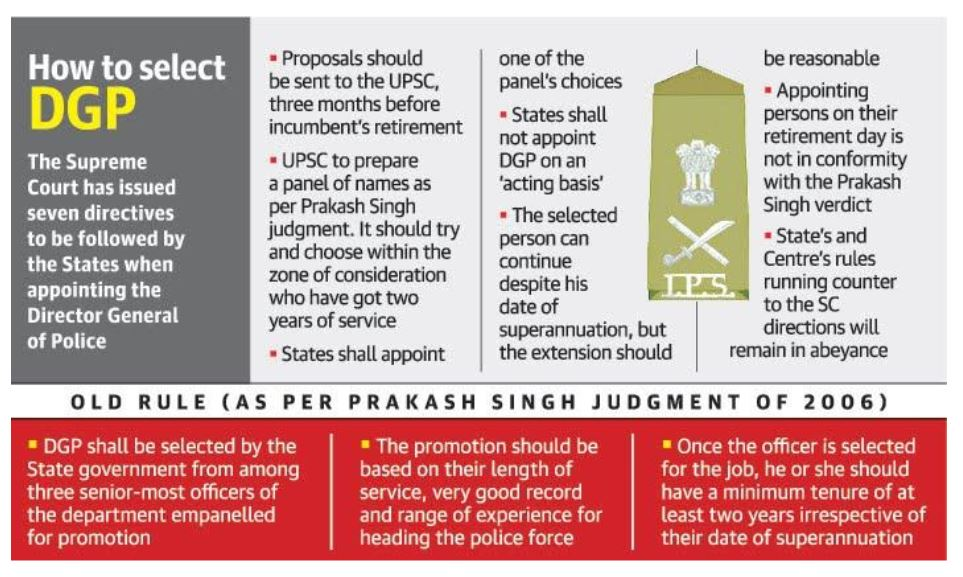Description

Copyright infringement not intended
In News:
- The State government of Nagaland appointed Rupin Sharma as the Director General of the State police.
- On 23rd January 2023, the Supreme Court of India directed the Nagaland government to appoint the 1992-batch IPS officer “Rupin Sharma” as police chief within a week.
- The Court order was passed after Nagaland Government challenged the Union Public Service Commission’s (UPSC) recommendation of Rupin Sharma as the only candidate for the post.
.jpeg)
Background:
- Nagaland’s previous DGP was due to retire in August 2022, but the Union Home Ministry gave him a 6-month extension, allowing him to remain in office beyond the date of his superannuation (Retirement age).
- A student union challenged the extension order of the Home Ministry in the Supreme Court.
- The Court asked the state to send a panel of eligible officers for the post to the UPSC.
- The state’s list had 2 names; Rupin Sharma and Sunil Acharya.
- However, Acharya, an additional secretary in the Cabinet Secretariat, was unwilling to return to his parent cadre, so the UPSC sent only Sharma’s name to Nagaland for consideration.
- The UPSC stated that Rupin Sharma alone met the criterion of a minimum of 30 years of service.
- The state objected to the UPSC recommendation, arguing that the Supreme Court in the Prakash Singh judgment (2006) said that the panel must have at least 3 officers and UPSC must therefore reduce the service length criterion to 25 years (so that more officers become eligible).
- However, the court ruled in favour of UPSC, saying this could create a situation in which a senior officer is forced to function under an officer five years junior to him.
-
-
- It also said that the stipulation of three officers in the panel was not inviolable.
Appointment Process of DGP:
- According to the SC’s guidelines on the appointment of police chiefs in the Prakash Singh judgment (2006), the DGP is to be selected by the state government from among the 3 senior-most officers by the UPSC based on their service length, record and range of experience for heading the police force.
- The DGP should have a fixed tenure of 2 years in the post, irrespective of the date of retirement.
- A DGP can be removed only in exceptional circumstances.
- In 2019, the UPSC issued its guidelines (based on the court judgment) on the appointment of police chiefs of states. According to these guidelines, states are supposed to draw up and send to the UPSC a list of eligible officers with at least 30 years of service, their service records, performance appraisals, and vigilance clearance.
- These officers are to be of the rank of ADG or the rank of police chief.
- The list must be given to UPSC six months before the current DGP is to retire.
- A committee headed by the UPSC chairman, and with the union home secretary, state chief secretary, state DGP, and the chief of a central police organization in it, is supposed to select a panel of three officers “based on merit”.
- For smaller states that may have only one cadre post of DGP, the committee is supposed to send two names.
- Under the present rules, the consent of an officer is not required for her posting. Also, the Centre has the power to not relieve an officer for posting in the state.



https://indianexpress.com/article/explained/row-over-nagaland-dgp-how-are-state-police-chiefs-appointed-8430320/
















